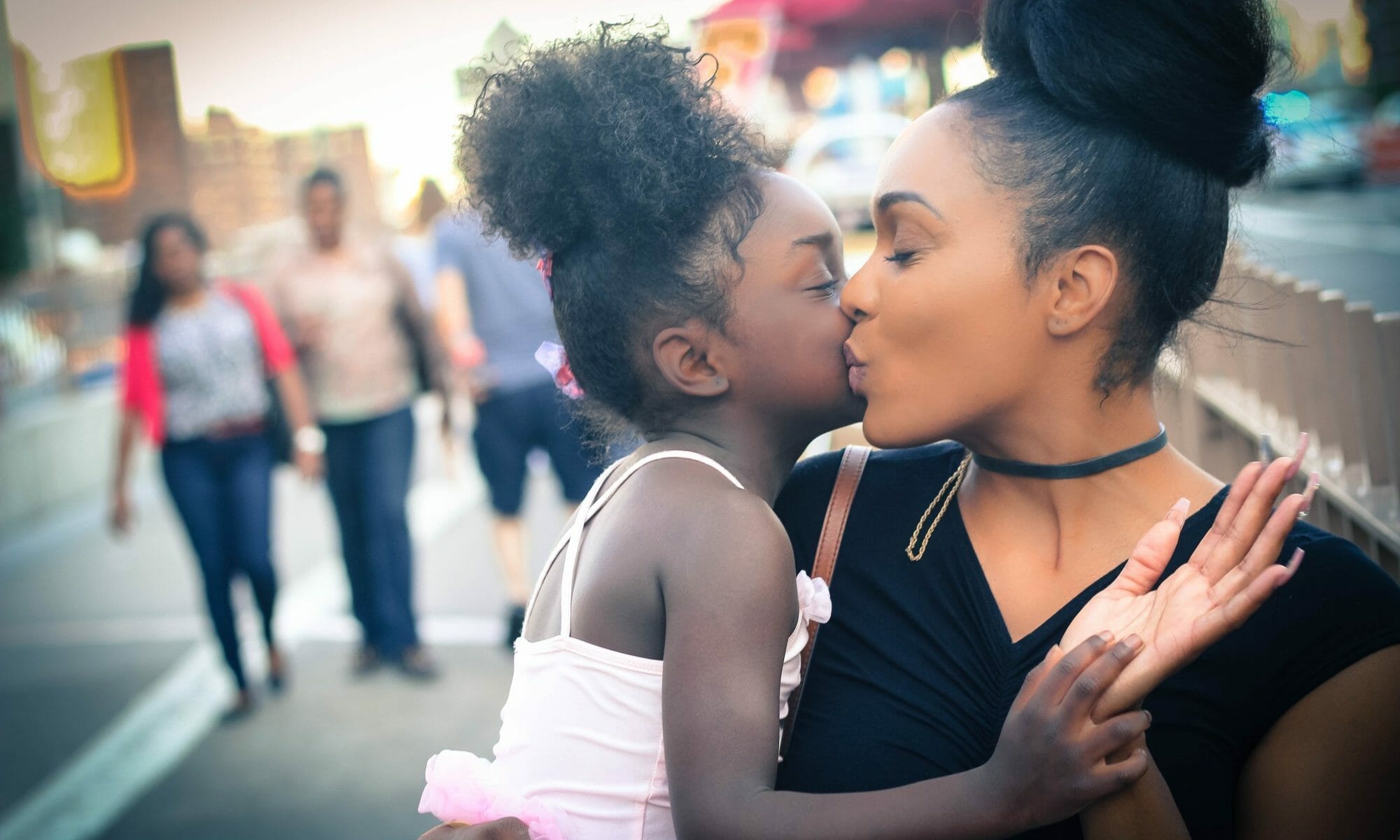Family therapists extoll the benefits of co-parenting and with good reason. Countless studies demonstrate that kids do better when they remain in regular contact with both parents.
What’s more, research indicates that parents who co-parent experience less conflict. Especially when compared to custody arrangements where one individual holds sole custody.
Of course, successful co-parenting requires maturity on the part of both exes. To minimize the pain felt by children after a split, parents should avoid dealing with conflict in front of them. This approach also helps children foster a sense of resilience over the long-term.
Situations exist, however, where parallel parenting remains the better option. Let’s explore the differences between co-parenting and parallel parenting. We’ll also take a look at situations where each approach works better.
The Co-Parenting Approach
What is co-parenting? Co-parenting is when two separated or divorced parents share the bulk of child-rearing responsibilities. This approach provides children with access to both parents.
When parents maintain equivalent or equal responsibility for the upbringing of their children, their offspring benefit.
How? Studies show that children of divorce who spend at least 35 percent of their time with each parent are more well-adjusted. They manifest greater behavioral and psychological health. They also enjoy increased academic success.
Of course, there are caveats to this approach, especially if one or both parents are deemed unable to care for their children. Those rare cases aside, however, co-parenting remains a viable, healthy means of child-rearing post-divorce.
Co-parenting provides a wonderful opportunity for children to stay in close contact with both parents. The arrangement also provides kids with the psychological space and permission to love both parents–without taking sides.
Things to Keep in Mind About Co-Parenting
Co-parenting comes with its own set of unique challenges. These include the necessity of fostering a long-term relationship with your ex. At least until your kids are grown. This aspect of co-parenting, alone, can make separating or divorcing partners feel uneasy.
If you choose to go this route, establish healthy boundaries. Set up clear, firm rules about communication from the get-go. Schedule time to sit down with your ex to discuss a parenting schedule.
You’ll also need to touch bases occasionally to discuss what’s going on with your kids. As children get older, you’ll need to stay on the same page about schooling, homework, behavior, and consequences. Without regular communication, misunderstandings can occur.
What’s more, kids of divorce sometimes learn to take advantage of communication gaps between parents to avoid chores, consequences, and more. Here are some useful tips for keeping communication open to promote an amicable divorce.
Flexibility and Co-Parenting Over Time
As children grow, their needs change. You must take this into account as you develop a co-parenting agreement. Younger children adjust better with fewer transitions between homes.
As for adolescents and teens? They’ll want input when it comes to decisions about custody schedules. As they commit to extracurricular activities and first jobs, don’t be surprised if your custody calendar requires some workarounds.
You and your ex should revisit the schedule from time to time. After all, it represents a tool to help you both meet your children’s needs, especially as they grow. Find out more about creating a custody calendar.
The better your relationship with your ex, the easier these conversations will go. Respectful communication, clear expectations, and firm boundaries will help you achieve the most favorable outcome.
When Co-Parenting Hurts Children
Of course, there are times when co-parenting isn’t the best approach. Parents who remain angry and hostile towards one another need an alternative. Otherwise, continued conflicts can create painful situations for kids.
Children may feel as if they’re stuck in a battle of wills or conflict of loyalties. They may find it difficult to interact with their parents, particularly when they feel pressured to pick a side.
When one parent complains about the other in front of the kids? The children suffer.
To make co-parenting work, parents should never bad-mouth their ex in front of their children. They should also avoid sending messages to their co-parent through a child.
After all, kids should enjoy their childhoods. They shouldn’t have to repeatedly deal with baggage from you and your ex’s previous relationship.
Not all parents can make a mutually respectful relationship with an ex work, though. That’s when another approach, parallel parenting, comes into play.
The Parallel Parenting Approach
While co-parenting remains the ideal, it isn’t always possible. Interacting with an ex during drop-offs, speaking to your ex, or making shared decisions isn’t for everyone.
What happens if you give co-parenting a try but realize it’s not going to work? Then, creating a parallel parenting plan is in order.
It will help you and your ex establish firm boundaries while removing much of the potential for conflict during face-to-face meetings. It’ll also minimize the number of interactions you and your ex need to have at all.
What is parallel parenting? This approach refers to a type of co-parenting where former partners disengage from one another.
They limit direct contact with each other, too. Particularly in situations where they’ve demonstrated they can’t communicate respectfully.
Guidelines for parallel parenting include:
- Minimizing conflict by sharing a custody schedule via a calendar, app, or in writing
- Avoiding the communication of personal information
- Communicating politely without involving the children
- Avoiding all schedule changes without a written agreement
- Communicating in a non-personal, business-like manner
- Communicating information relevant to your children’s well-being
These ground rules help parents remain disengaged from each other while staying close to their kids.
Things to Keep in Mind About Parallel Parenting
Parallel parenting doesn’t mean that parents are any less committed to making responsible decisions about their children’s upbringing. This approach does mean, however, that exes decide on the logistics of day-to-day parenting separately. That said, you’ll still need to coordinate schedules, drop-offs, pick-ups, etc.
Apps such as 2houses can help you and your ex get on the same page when it comes to custody schedules, support payments, and more. This technology can minimize interactions and misunderstandings. It’s a win-win for all involved.
Parallel parenting works well to decrease friction associated with high conflict situations. Through this initial approach, former partners may also lay a foundation for co-parenting if and when they feel ready to put aside past hostilities.
By focusing on the best interests of their children, many parents eventually move beyond contentious relationships. Over time, they may even cultivate a healthy understanding grounded in mutual respect.
The Benefits of Co-Parenting and Parallel Parenting
Whether former partners opt for co-parenting or parallel parenting, both approaches can work well. They also both come with clear advantages. These include:
- Enjoying better psychological adjustment into adulthood
- Feeling a greater sense of security
- Growing up with healthier parental role models
- Fostering good communication skills
- Developing better problem-solving skills
As you can see, the rewards of successful co-parenting and parallel parenting far outweigh the difficulties. Yes, exes must work through their differences, but it’ll prove well worth it.
By keeping your eye on the prize, a healthy, well-adjusted child, you can make achieving a parenting arrangement easier. After all, maintaining a cordial relationship with your child’s other parent is better for everyone involved.
Remaining positive and respectful will help you avoid making children feel as if they need to choose between you and your ex. You’ll also guarantee that they don’t feel stuck in the middle.
The disintegration of a romantic relationship can feel all-encompassing. As a result, it’s easy to overlook the ramifications of such a life event on your kids. There are ways to lessen the stress and anxiety they experience, though.
That way, they can focus on living happily and harmoniously in two homes moving forward.
How to Help Younger Children Adjust to Two Homes
How do you best help children under the age of ten get used to life under two roofs? Start by reassuring your children that they still have two parents who love them.
What happens if your child doesn’t want to go with their other parent when it’s their scheduled time? Sit down together and have a heart-to-heart conversation. Let your children know that even though mom and dad are no longer together, that doesn’t mean either one loves them any less.
Reassure them, too, that you’re both still good parents. Finally, let them know that mom and dad are cooperating to make sure they get plenty of time with each of you.
Maintain a Sense of Regularity and Structure
It’s also important to encourage younger kids to stick to the custody agreement that you’ve set up with your ex. A consistent schedule will go a long way towards making them feel stable and safe.
When schedule changes arise, as they will, help your kids anticipate these changes. Plan ahead by assisting kids in packing a prized possession or two.
Just remember to keep these items to a minimum. Packing a favorite blanket or stuffed animal is never a bad idea, but most parents prefer to keep duplicate items at their house.
Once your children return from visits with their other parent, remain positive or neutral about their experiences. It’s essential to set aside your differences and support your children in developing a strong relationship with your ex.
Last but not least, work hard to maintain a business-like, respectful relationship with your former significant other. That means avoiding expressions of anger in front of the kids. You don’t want to put your kids in the position of playing referee.
How to Help Older Kids Adjust to Two Homes
When it comes to older kids, particularly teens, both parents will need to be more understanding of their hectic schedules. Many teens navigate a variety of activities each day, including school, extracurricular activities, and time spent with friends.
They may also have jobs and other responsibilities, such as preparing for college entrance exams. It can feel stressful enough for them to juggle their lives, let alone add two homes to the mix.
So, keep the lines of communication open. Also, be flexible when things come up.
By taking some of the pressure off teens, you create an understanding environment. One where they feel supported. You also avoid resentment, which can build up when teens feel pulled in too many directions.
Allow Teens to Cultivate a Sense of Independence and Autonomy
You should also encourage your teens to spend time with their friends and other family members, including extended family. Avoid making them choose between you or their friends. After all, at this age, friends will almost always win.
One way to show your teens that you care about their friends, too? Plan some activities that incorporate them. Whether tickets to a sporting event or the movies, this approach encourages teens to bond with peers at home, too.
Remember that teens naturally desire more autonomy at this age. It’s a healthy, though bittersweet, part of growing up.
Nevertheless, teens still need to foster relationships with their parents, even though they probably won’t admit it. As a parent, it’s your job to guide them in the right direction.
In the Best Interests of Your Children
Co-parenting and parallel parenting offer structured solutions for child-rearing with an ex. These approaches come with benefits. They allow you to establish boundaries and protocols moving forward.
Acting mutually respectful also sets a fantastic example for your children. It helps them develop better problem-solving skills while providing them with a sense of stability and reassurance.
Ready for more sound advice to help you navigate custody arrangements? Check out this exploration of 50/50 custody and how to make it work.









